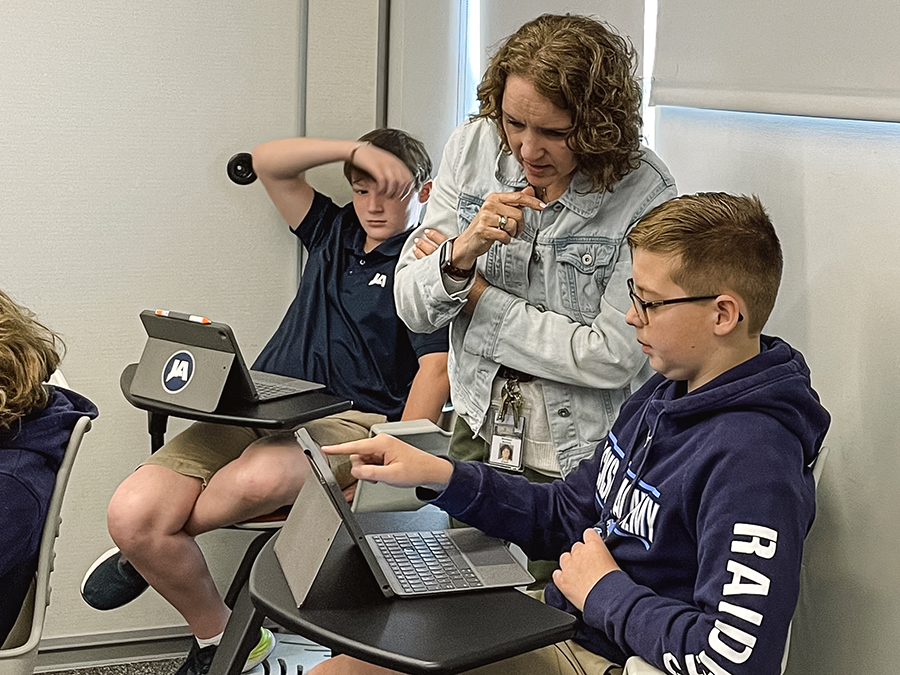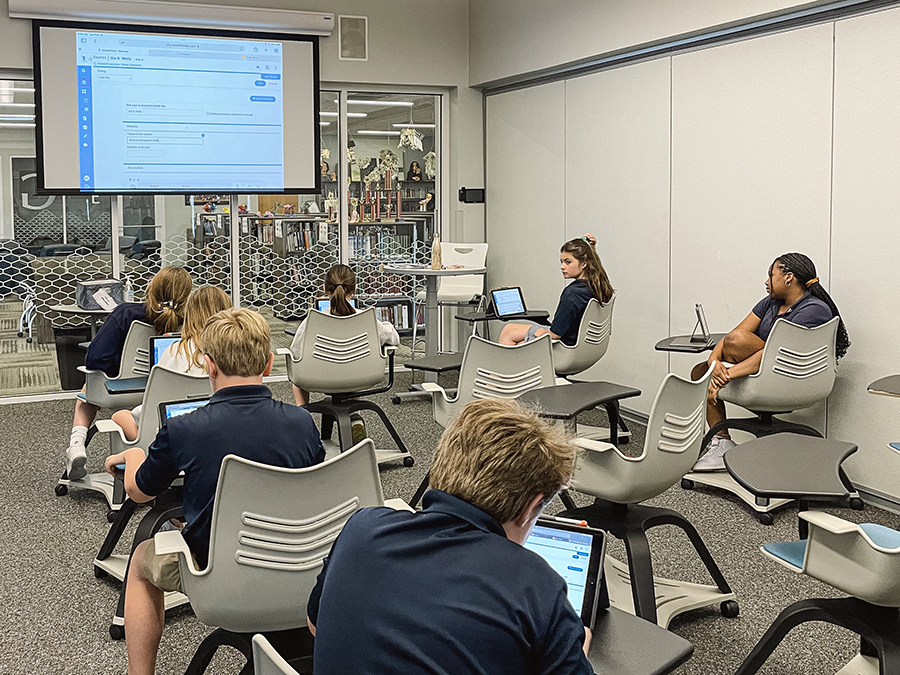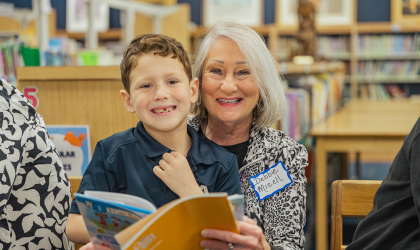

In this blog post, we learn how Jackson Academy works to prepare students to be good digital citizens.
As access to and reliance on the internet grows, it is, now more than ever, important to teach students about the right ways to use this powerful tool.
Jackson Academy teaches a Digital Citizenship class for fifth grade students when they begin taking home school-issued iPads and again in ninth grade as a touch point for continued internet safety. All students are encouraged to become responsible web-citizens as they discuss topics such as online safety, privacy, and ethical research methods.

Fifth grade is the first year that students take JA devices home, but it is also a pivotal year in their lives as they are growing and becoming more social. Some students have phones and social media accounts while other students don’t. However, it is important to educate all students on how to be a good digital citizen. We spend time talking about online safety, privacy and security, cyberbullying, and ethical research.
While the topics do not change in the ninth grade Digital Citizenship course, the discussion goes deeper because these students are able to handle more mature themes. Unfortunately, students face social media dilemmas daily and must learn to make the right choices because those choices reflect back on them. Students are encouraged to leave a positive digital footprint from the pictures and videos they post, the comments they leave, and to the songs they choose. Everything on the internet is out there forever. This point is discussed at length in class.
When asked what parents should know about internet safety, Bronwyn Burford, Middle and Upper School Library Media Specialist, states, “I think the best advice I could give parents is to have open and honest conversations with your children about their use of technology and the impact of what they are doing now has on their future.” Burford believes that parents should be aware of the social media their child uses and be invested in their online lives. “Parents should remind them that the choices they make regarding their use of technology will reflect on them in a positive or a negative way and the choice is up to them!” she said. In addition, parents are reminded to be prepared that students might mess up occasionally but that they love them, no matter what!

